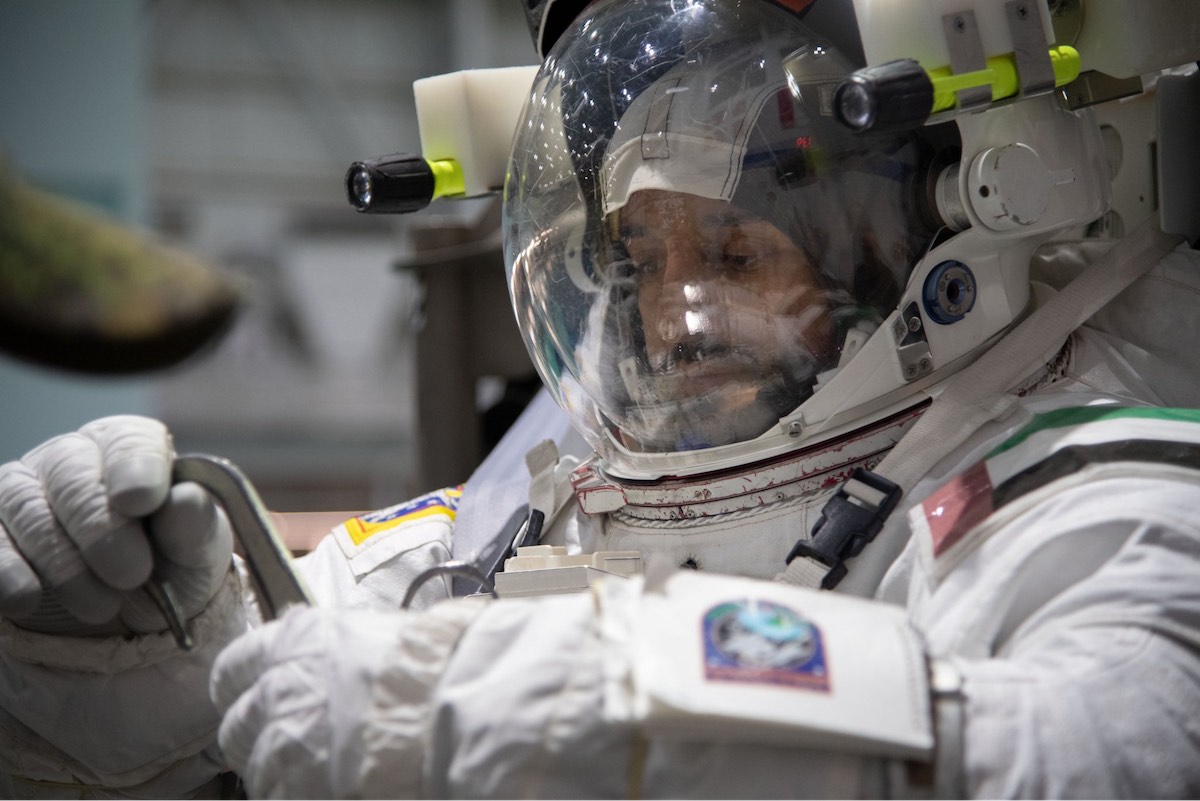In recent years, the UAE has made exceptional progress in developing the country’s space agency, broadening both its space science programs and technological capabilities. From the UAE’s own planetary expeditions to Emiratis serving as pioneers in space exploration, the country has served as a trailblazer in the work that reaches beyond Earth’s horizons. Further signifying the UAE as a country of progress, many initiatives have involved Emirati women. The UAE has also used space projects as a means of furthering its diplomatic collaborations by partnering with other countries in its cosmic endeavors.
Read on to learn how the UAE is forging a new, galactic path.

Planetary Expeditions
A priority space project for the UAE has been interplanetary exploration. In July 2020, the Emirati’s Mars Mission successfully launched and landed the Hope Probe on the red planet. Hope, or “Al Amal” in Arabic, has begun collecting and transmitting atmospheric data which will assist the UAE in developing its science and technology sector. The completion of this mission signified several milestones for the UAE — marking it as the first Arab nation and the fifth country in the world to reach Mars.
Emirati Astronauts
In 2019, Hazza Al Mansouri made history as the first UAE astronaut to travel to space, embarking on another first for the country – the UAE’s first scientific mission to the International Space Station (ISS). In 2023, another Emirati astronaut, Dr. Sultan Al Neyadi, traveled to the ISS, joining NASA’s SpaceX Crew-6 Mission. Dr. Al Neyadi trained alongside U.S. astronauts, which also qualified him to complete other NASA-led missions.
The UAE will soon send two other astronauts to space: Mohammed Al Mulla and Nora Al Matrooshi. These two astronauts are a symbol of both the continued progress of the UAE’s space program, as well as the country’s commitment to gender inclusivity as Nora Al Matrooshi will be the first woman from the UAE in space.
The UAE’s Interstellar Allies
Partnerships with the United States, United Kingdom and Japan have been a key component in driving the success of the UAE’s various space explorations and research. Together, these countries assisted the UAE with both the lunar and Mars missions, and the U.S. has included Emirati astronauts in NASA training and expeditions.
The UAE Space Agency has also been involved in space diplomacy efforts to encourage peaceful use and sustainable development of outer space. This has included participating in the United Nations Committee as well as signing the Artemis Accords to further lunar exploration collaborations among participating countries.
Emirati Women in STEM
The UAE’s space exploration initiatives would not be possible without Emirati women working to drive advancements of science and technology. Aside from Al Matrooshi being the first female Arab astronaut, many other Emirati women have made strides in space science. The science team behind the UAE’s journey to Mars was 80% women and was led by Her Excellency Sarah Al Amiri, Chairwoman of the UAE Space Agency and Minister of State for Public Education and Advanced Technology. Following the Mars mission, Al Amiri has used her position to promote STEM research and development.
Another young Emirati woman making history in the field of space science is Alia Al Mansoori. At just 15 years of age, Al Mansoori‘s experiment on Genes in Space was chosen for testing at the ISS. NASA astronaut Peggy Whitson successfully completed this experiment which focused on the abilities of heat shock proteins to protect the human body from other planetary atmospheres. The success of her hypothesis has opened opportunities for scientists to further explore the possibilities of DNA science in space. This led to Al Mansoori being appointed as a research fellow at NYU Abu Dhabi – the youngest person to receive this honor.
Exploring and Innovating for a Better Universe
As the UAE builds on its position as a growing leader for space research, exploration and innovations, the country will continue to develop its space program to inspire future Emirati engineers and scientists. With women representing half of the UAE Space Agency’s employees, the Emirati space program undoubtedly represents a new generation of STEM. All of the UAE’s work is also being done with human and environmental impact in mind, using the agency’s space sustainability rating system to minimize potential harm on cosmic environments.
In the future, the UAE hopes to explore the asteroid belt between Mars and Jupiter as part of a new interplanetary mission under the country’s “Projects of the 50.” A marker of the country’s first 50 years, “Projects of the 50” is a series of initiatives that will help launch the UAE into the next five decades through a partnership with the University of Colorado Boulder’s Laboratory for Atmospheric and Space Physics.